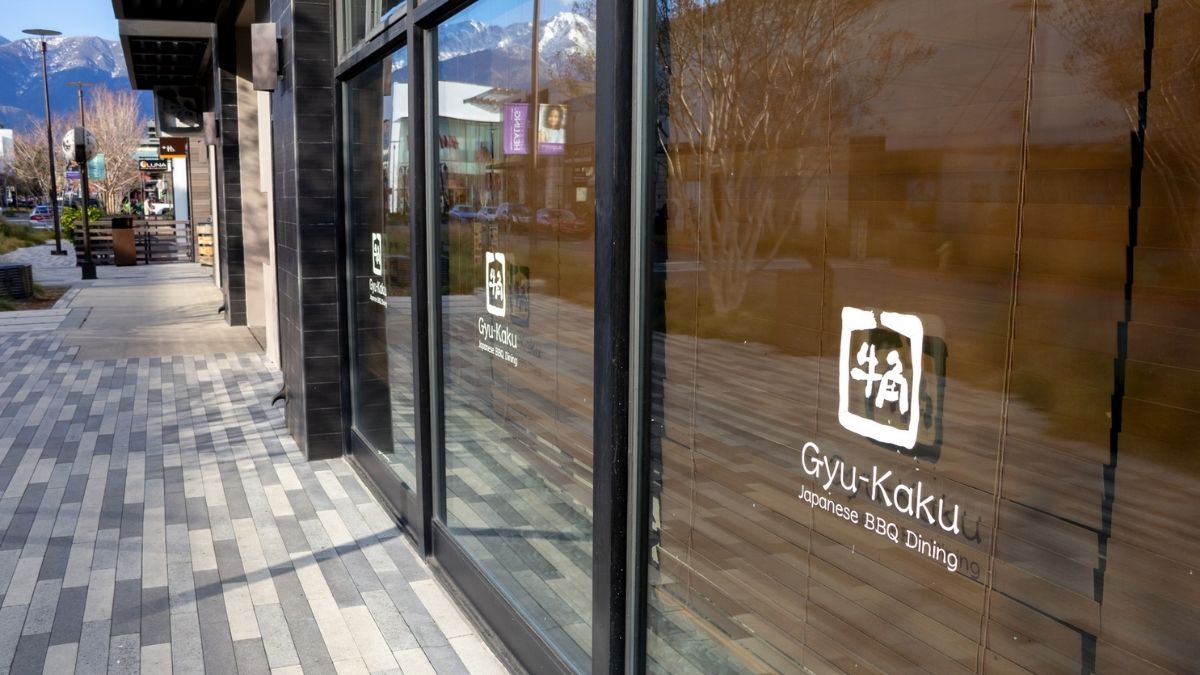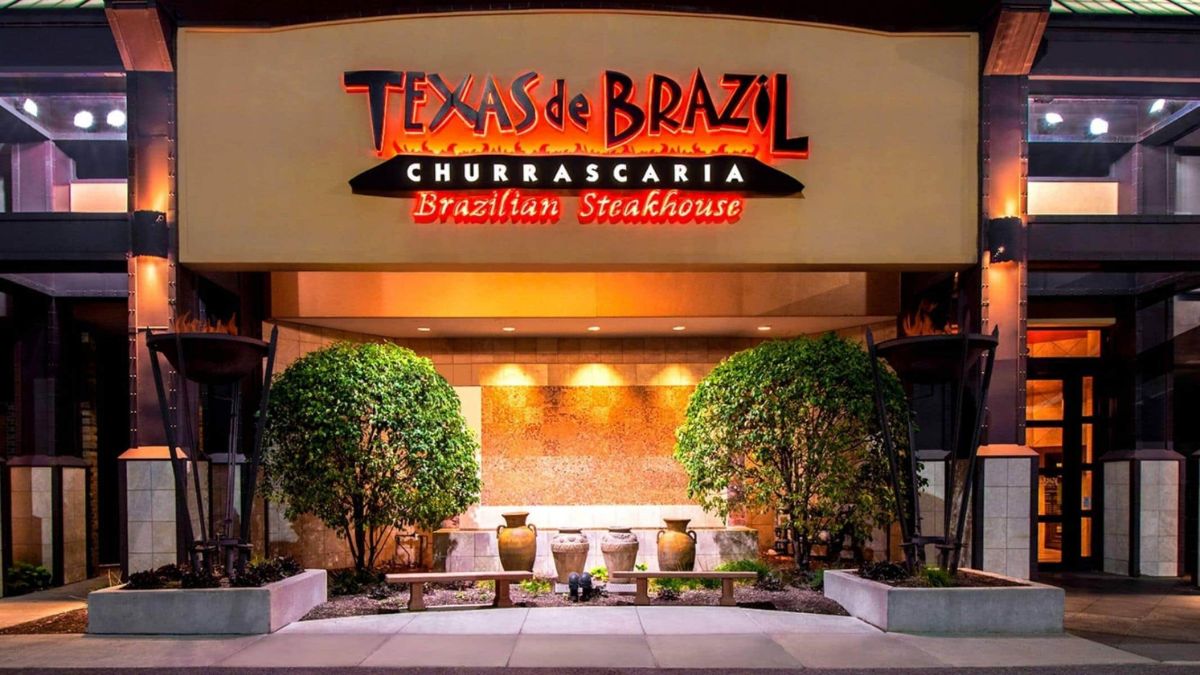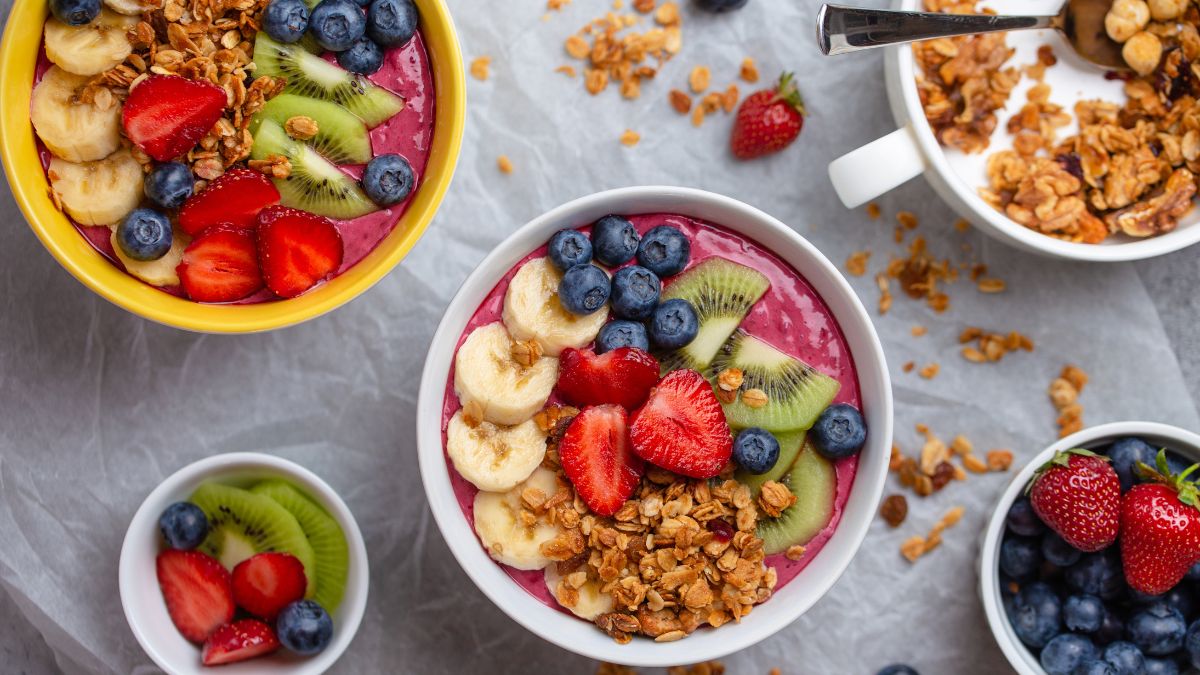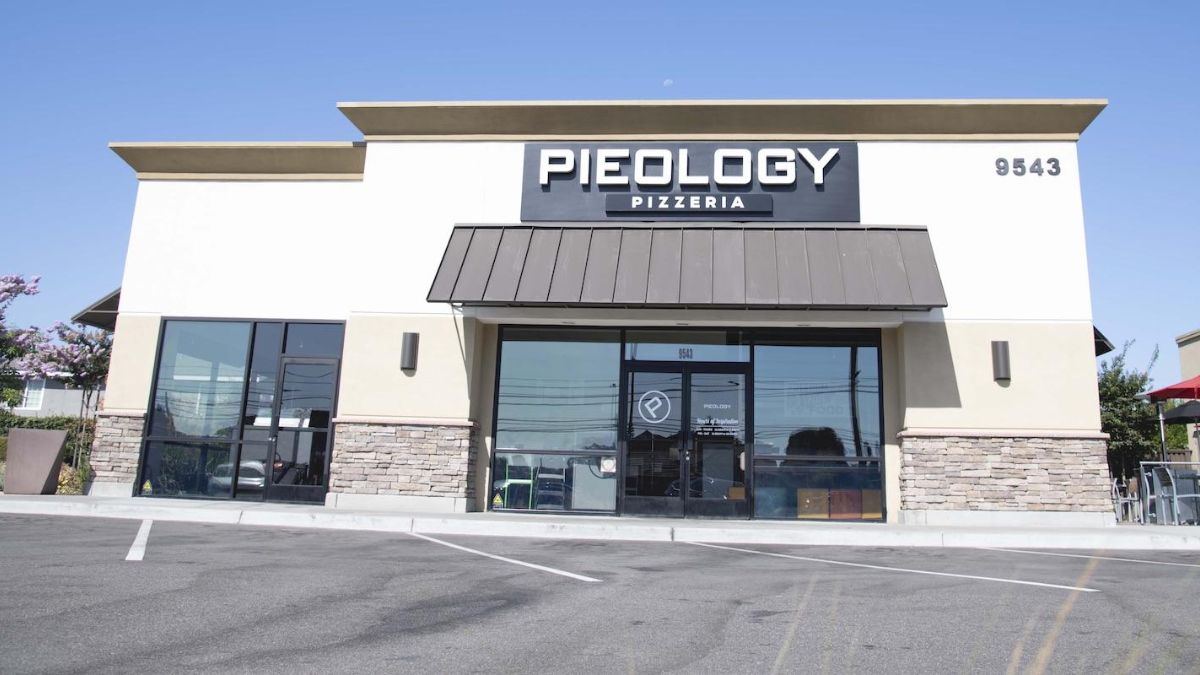Ever heard about yakiniku? Yeah. It’s the Japanese term for grilled meat, simply known as barbecue.
Yakiniku is what Gyu-Kaku Japanese BBQ specializes in. Unfortunately, it’s not suitable for vegans, especially since it mainly involves meat.
Gyu-Kaku restaurant prides itself in producing authentic Japanese BBQ alongside other Japanese cuisines that I didn’t know existed. But if you’d be rubbing shoulders with Gyu-Kaku in one of its locations, the good news is, you still get to dine in. They have vegan-friendly options for you, at least, on request, and it’s what we’re living for!
So, if you’re eyeing the Japanese cuisine this time, let’s find something that’s good for vegans. Let’s start digging in, shall we?
Table of Contents
Gyu-Kaku, Your Authentic Japanese BBQ
Gyu-Kaku, meaning “bull’s horn” built its first restaurant in 1996, and started franchising in 1997. Its first U.S. location was opened in 2001, and in 2002, it opened its franchise in Taiwan. The restaurant is part of Reins International Inc., although each location varies in terms of food availability.
Gyu-Kaku Japanese BBQ, to this date, has over 600 locations in Japan alone. How cool is that? And there are about 14 locations in the U.S., including California, Kansas, New York City, Pittsburgh, New Orleans, Chicago, Dallas, Houston, Hawaii, Boston, Philadelphia, Miami, Cincinnati, and Atlanta.
Other locations are Canada, Cambodia, the Philippines, Hong Kong, Malaysia, Singapore, Indonesia, Thailand, and Vietnam.
In the U.S. locations, Gyu-Kaku Japanese BBQ only serves locally-sourced USDA beef, something that’s not available in other locations outside the U.S.
Gyu-Kaku Japanese BBQ also has its own signature brand of kimchi in the Japanese market alongside its sauces and marinades.
Gyu-Kaku Japanese BBQ Vegan-Friendly Options
Gyu-Kaku Japanese BBQ has several vegetarian-friendly options. These may contain eggs, butter, or cheese though, but since these are for pre-order, you can ask the staff to skip the dairy products for you.
For instance, you can order their Sukiyaki Veggie Rice Bowl, Garlic Veggie Noodles, and Beyond Bibimbap Rice Bowl without the butter. Just let them know before ordering.
Its line of table sauces and marinades are all gluten-free, which is great for those who have Celiac disease. Their sauces include:
- Miso: rich miso flavor and soy sauce
- Sweet Soy Tare: soy sauce, pear juice, ginger
- Shio: garlic, salt, soy sauce, sesame oil
- Garlic: garlic paste with sesame oil and shio white soy
- Basil: Italian pesto (contains pine nuts) with sesame oil
- Teriyaki: rich soy sauce Flavor, sweet glaze
These vegetarian options may include dairy, but on request, ask the crew to skip these ingredients.
- Vegetable Spring Rolls
- Spicy Addicting Cucumber
- Yuzu Shishito Peppers
- Spicy Cabbage Salad
- Shio Negi Cold Tofu
- Wakame Seaweed Salad
- Edamame
- Vegetable Sukiyaki Bibimbap
- Garlic Fried Rice
- White Rice
- Organic Brown Rice
- Garlic Noodles with Vegetables
- Seaweed Soup
- Garlic Shio Cabbage
You may also ask for extra toppings.
- Kuki-Wasabi
- Crunchy Garlic Sauce
- Scallion Sauce
Gyu-Kaku Japanese BBQ’s vegetables are also available for grilling and steaming.
- Assorted Vegetables
- Zucchini
- Shishito Peppers
- Spinach Garlic
- Garlic Mushroom
- Asparagus
- Broccoli
- Mushroom Medley
You can also ask for their Gyu-Kaku Salad minus the hardboiled egg.
For desserts, they also have available for vegetarians. You just have to ask the staff to skip the dairy if possible.
- Frosty Tropical Sorbet
- Chocolate Lava Cake with Ice Cream
- Matcha Tiramisu
- Vanilla or Green Tea Ice Cream
- Taiyaki with Ice Cream
- Mochi Ice Cream
Pro Tip: Gyu-Kaku Japanese BBQ also offers Happy Hour prices. So, if you plan to dine in, you can make a reservation through their website.
What Is Yakiniku?
Yakiniku, meaning grilled meat cuisine. It was made famous by Japanese writer Kanagaki Robun in his 1872 Western food handbook. The term yakiniku was first referred to Western barbecue and then became associated with Korean cuisine.
Now, yakiniku is best known as a style of cooking bite-sized meat and vegetables that are grilled on griddles or gridirons. These are cooked over flaming wood charcoals. Yakiniku has been one of the most popular Japanese dishes. The modern yakiniku though is sometimes considered Korean barbecue.
Today, in most yakiniku restaurants, diners would order raw ingredients that have been prepared, then have them cooked or grilled on their table with a built-in grill. These would include dipping sauces or tare, which is usually made of soy sauce mixed with mirin, sake, sugar, garlic, sesame, and fruit juice.
Others would sometimes use garlic and shallot, or miso-based dips. Yakiniku can either involve beef, pork, chicken, seafood, and veggies. For vegetables, bell pepper, shiitake, and other mushrooms, carrots, cabbage, onions, bean sprout, eggplant, kabocha squash, and garlic are widely used.
Every 29th day of August, Japan celebrates Yakiniku Day.
The meat in yakiniku is usually cut thin, so you will need to keep your eyes on the slices on the grill to avoid burning them.
Best Vegan-Friendly Japanese Food To Order
If you have just been introduced to Japanese cuisine, you may think that it’s difficult to find one that’s vegan and animal-friendly. Japanese food is known for its seafood and meat-based ingredients, but then again, all cuisines have their own fair share of vegan-friendly options.
So, if you’re new to Japanese food, the list below would help you get the best vegan-friendly options available.
- Miso
- Tofu
- Soba and Udon Noodles
- Gomacio
- Tamari and Shoyu
- Mushrooms
- Sprouts
- Wasabi
- Seaweed
- Rice
- Pickled Ginger
- Umeboshi
- Edamame
- Seasoned Cucumber
- Ramen
- Sweet Potato
- Nori Rolls
- Natto
- Mochi
Japanese cuisine also has vegan-friendly styles of cooking.
- Macrobiotics. This style of Japanese cooking also includes fish, but you can always skip it.
- Shojin-Ryori Cuisine. This cooking completely keeps both meat and seafood off-limits.
Vegan Japanese Restaurants In The US
It can be hard to find all-vegan Japanese restaurants near you. Even Gyu-Kaku Japanese BBQ only offers vegetarian-friendly dishes with a few vegan options. However, you may want to visit one of these locations in the U.S. that offer vegan Japanese dishes.
- Kajitsu in New York City
- Shojin in Los Angeles and Culver City
- Cha-Ya in San Francisco and Berkeley
- Red White Japanese Vegan in Boston
- Shizen Vegan Sushi Bar & Izakaya in San Francisco
- Tane Vegan Izakaya in Honolulu
- Souen in New York City
There’s also one in Australia called Zen Japan, and Saidō in Tokyo, Japan.
How Healthy Is Japanese Food?
The traditional Japanese diet is considered very healthy due to the balanced nutrition that one can get. Most Japanese dishes are low in calories and saturated fats. Although Japanese food involved fish and meat, vegetables give well-balanced nutrients, especially since they’re rich in flavonoids.
According to research, flavonoids reduce the risk of cardiovascular diseases, including congenital heart disease as well as other chronic diseases. This is because flavonoids have high anti-oxidative, anti-inflammatory, anti-carcinogenic, and anti-mutagenic properties.
Japanese dishes are also commonly unprocessed and fresh with little to no refined ingredients. The most nutritious components that make Japanese food very healthy are fiber and flavonoid-rich fruits and vegetables. These include soya beans in the form of tofu or edamame, seaweed, apples, tangerines, and persimmons, among others.
For instance, the island of Okinawa, Japan has the highest number of centenarians with the lowest risk of age-related diseases, including Alzheimer’s, diabetes, arthritis, and cancer. Their traditional Japanese diet is attributed to their life’s longevity.
What makes Japanese cuisine healthy is its staple food that can be either vegetarian or vegan-friendly with lots of options available.
- Main Dish. Tofu and natto are widely used.
- Staple Food. You can have either ramen, rice, soba, or udon noodles.
- Soup. Tofu with vegetables, noodle soup, or miso soup with seaweed.
- Side Dishes. The vegetables mentioned above are either boiled, steamed, raw, grilled, pickled, or sautéed. Others include seaweed, wild plants, or raw or pickled fruit.
Japanese cuisine is known for its umami taste, which can be achieved by vegans through the styles of cooking vegetables and other plant-based main dishes.
The traditional Japanese diet mostly cuts off many ingredients that vegans avoid, which is something that makes this diet suitable for those who follow a plant-based diet.
- dairy
- red meat or poultry
- eggs
- excessive fats, sauces, and oils
- baked goods
- processed, refined, or sugary food
Also, most Japanese desserts are made with natural ingredients instead of added sugars. These include matcha, fruits, and red bean paste, among others. With regard to the snacks, the Japanese diet also tries to avoid chips, popcorn, crackers, or trail mix.
The Bottom Line
Gyu-Kaku Japanese BBQ is not a full-fledged vegan restaurant, but because of its authentic Japanese cuisine offering, there are many vegetarian options that can be made vegan on request.
The restaurant also offers different dipping sauces that are safe for vegans. But since it’s not a vegan-focused spot, it still makes sense to always ask the crew before ordering food from Gyu-Kaku.
Several options are available for you to order from Gyu-Kaku such as its vegan-friendly veggie rice bowls and bibimbap.
Apart from these, there are also many available noodle soups to get, including ramen although you will have to check the flavor to ensure it’s vegan-friendly. I wrote about ramen in this article if you want to learn more about it.




